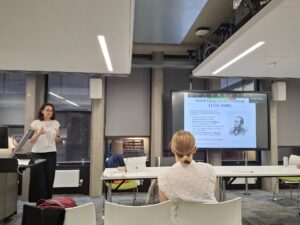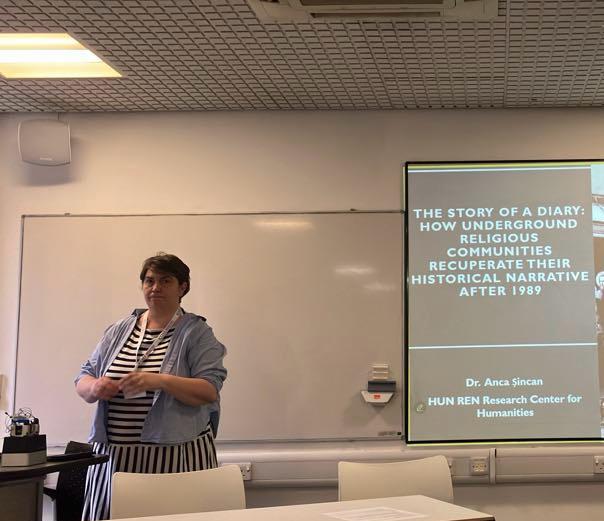The International Council for Central and East European Studies (ICCEES) held its eleventh World Congress in London between 21-25 July 2025. The five-days-long event focused on the theme of “disruption”, and it was hosted by University College London. The Institute of Education, located in the Bloomsbury area of London, gave home to nineteen parallel-running panels for a week, several roundtable discussions, and three keynote lectures addressing the profound change and rupture the regions covered by ICCEES are currently going through.
As ICCEES promotes interdisciplinary methodologies and interactions among scholars who come together through their shared interest in the Central and East European region, the disciplines and areas represented at the conference were also highly diverse. They included but were not limited to: Politics; History; Sociology; Geography; Film and Media; Languages and Linguistics; Literatures and Cultures; Anthropology; Economics; Baltic Studies; Black Sea Studies; Caucasus Studies; Central Asian Studies; Central and East European Studies; Habsburg Studies; Polish Studies; Russian Studies; Siberian Studies; South-East European Studies; Ukrainian Studies. The World Congress also gave an opportunity for the in-person attendees to explore the library of UCL School of Slavonic & East European Studies (SSEES) and to get a glimpse into the everyday life of one of the world’s leading centres for the study of Central, Eastern and South-Eastern Europe. The congress offered several stimulating cultural programmes, including two thought-provoking and emotionally engaging exhibitions and a Yugoslav and post-Yugoslav Film Festival “Broken Pasts, Fragmented Futures”, which presented six rarely visible documentaries and feature films.
The enormous logistical achievement of providing a venue for nearly 400 different programme points was also complemented with the excellent technical infrastructure of the host institution: remote attendance was available both for the presenters and for the audience and this opportunity highly increased the accessibility and inclusiveness of the event.
Two members of the Sovereignty research team also presented their research at the ICCEES congress.
Anca Şincan’s paper “The story of a diary: how underground religious communities recuperate their historical narrative after 1989” shared the story of the circulation of a samizdat diaries of a young monastic sister (Greek Catholic) and brother (Old Calendarist) that chronicled the life in the religious underground in the 1950 and 1980s Romania. The presentation is based on research undertaken in state and church archives (Vatican archives) used by the clandestine communities after 1989 to reconstruct their relationship with the totalitarian state. Anca Şincan’s presentation contributed to the broader questions addressed by the panel “Declassified and Silenced Archives: Materialized Memories in Socialist and Post-Socialist Eastern Europe” chaired by Natalia Khanenko-Friesen (University of Alberta). The panel explored memory practices and the politics of remembering in socialist and post-socialist contexts, focusing on both archival stories and the stories of archives themselves. Three more presentations were given by Tatiana Vagramenko (University College Cork), James Kapaló (University College Cork) and Cristina Vatulescu (NYU). followed by a vivid discussion, kicked off by Julie DeGraffenried’s (Baylor University) thoughtful comments as the panel’s discussant.
Katalin Pataki presented her research on “Hungarian Bishops and André Langrand-Dumonceau’s Catholic Financial Empire”, exploring how the demise of the Papal States in the 1860s impacted the church politics of the Austrian Empire and how an international “Catholic” bank was considered as a potential third party to mediate the secularisation of ecclesiastical properties in the Hungarian territories. The paper was part of the panel “Between the Sacred and the Profane: Religion, Politics and Society” chaired by Yulia Aliyeva (ADA, Baku). Two more presentations were given by Yuki Fukui (Waseda University, Japan) and Earl Hodil (Pomona College, Department of History, United States). Both presenters explored the political and epistemological aspects of the religious-secular dichotomy in the Russian context.

